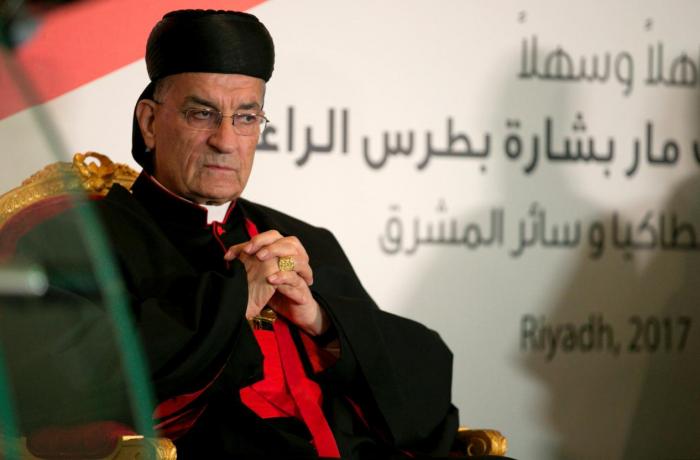The aim is to keep the flame of the 17 October protests alive. Patriarch al-Rahi urges young people to be free from sectarian and confessional restrictions. In times of crisis, people must make a common commitment to build a better home. The patriarch proposes an educational pact based on respect for diversity, fraternity and service.
Beirut (AsiaNews) – Convinced that each change needs an educational journey to develop a new sense of solidarity and a more open society, the Maronite Patriarch, Bechara al-Rahi, unveiled plans yesterday for a ‘comprehensive national educational pact’ at the Maronite bishops’ monthly assembly.
The project is inspired by Pope Francis who, on 12 September, endorsed an event, Reinventing the Global Compact on Education, which was eventually put on the backburner because of the pandemic.
The goal of this event is to “rekindle our dedication for and with young people, renewing our passion for a more open and inclusive education, including patient listening, constructive dialogue and better mutual understanding. “Never before has there been such need to unite our efforts in a broad educational alliance, to form mature individuals capable of overcoming division and antagonism, and to restore the fabric of relationships for the sake of a more fraternal humanity,” reads the papal message.
Patriarch al-Rahi’s plans follow street unrest on 17 October 2019, which the head of the Maronite Church views as “a positive and civilised revolution that brought together the new generation from all regions, communities and groups.”
For the prelate, an educational pact would “protect” the grassroots impulse from the “negative currents” that exploit it. With this in mind, he wants young Lebanese go beyond their narrow communal boundaries in order “to build a better homeland, called Lebanon, their” common home,” which the Constitution describes as the “ultimate homeland for all its children”.
In such a country, civil and religious affairs are separate, true to the words of Patriarch Elias Peter Hoayek who, at the Versailles peace congress in 1919, said: “In Lebanon only one community exists and it is called Lebanon; the communities present on this earth are components of its social fabric.”
The nature of the pact is “educational”, noted the patriarch, and must lead to “a new approach to all other activities”, be they cultural, economic or political, as well as to the creation of a “new cross-community elite.”
This pact would be based on three principles: respect for diversity, provided that differences are complementary and not antagonistic; real fraternity as understood in the Declaration on Human Fraternity in Abu Dhabi (4 February 2019); and the spirit of service.
For the patriarch, the aspirations of the “absolutely spontaneous” movement of 17 October, which the Church supports, “presuppose a permanent commitment to ensure that its flame will not be extinguished”. They also presuppose three things: “no” to all selfishness, “humanising the internet,” and rejecting the “culture of waste” (as Francis indicated) of which the elderly, the poor, children and people with special needs are the victims. They equally imply respect for the environment.
“Nature is not only a living environment for us,” said Patriarch Al-Rahi, citing the encyclical Laudato Si’ (118). “It is a separate reality from us and yet we are a part of it. To create a new reality, one must first be a new creature.”
Defending the earth
Ultimately, the national educational pact commits the young and the new generation to “preserve the nation’s land,” implement social justice, and undertake initiatives “in agriculture, light industry, industrialisation in general, and skills acquisition.” The Maronite Documentation Centre will coordinate the educational pact and all related activities.
Two new centres have also been planned. The first one, centred on the family, opened in June 2019 at the Mar Sarkis convent in Rayfoun, tasked with “human development and empowerment”. The second will begin operating this fall at the Visitation Convent in Aintoura.
Their focus will be music, culinary arts, crafts and learning (religion, languages, various cultures). The educational pact will be implemented under the supervision of a patriarchal vicar. As such, it will be “open to all young people in Lebanon regardless of group affiliation.”
By: Fady Noun
Source: www.asianews.it






